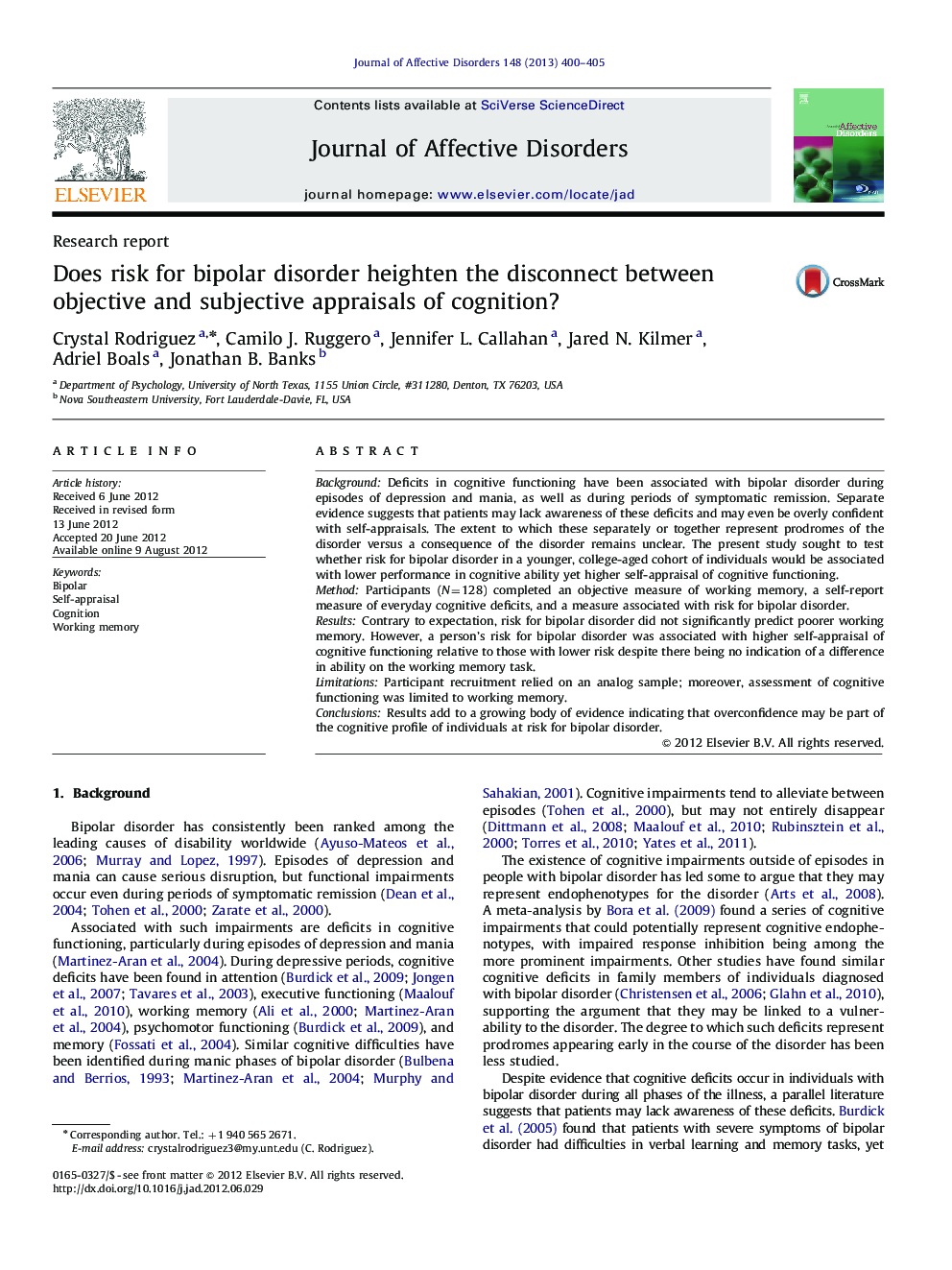| کد مقاله | کد نشریه | سال انتشار | مقاله انگلیسی | نسخه تمام متن |
|---|---|---|---|---|
| 6234479 | 1608174 | 2013 | 6 صفحه PDF | دانلود رایگان |
BackgroundDeficits in cognitive functioning have been associated with bipolar disorder during episodes of depression and mania, as well as during periods of symptomatic remission. Separate evidence suggests that patients may lack awareness of these deficits and may even be overly confident with self-appraisals. The extent to which these separately or together represent prodromes of the disorder versus a consequence of the disorder remains unclear. The present study sought to test whether risk for bipolar disorder in a younger, college-aged cohort of individuals would be associated with lower performance in cognitive ability yet higher self-appraisal of cognitive functioning.MethodParticipants (N=128) completed an objective measure of working memory, a self-report measure of everyday cognitive deficits, and a measure associated with risk for bipolar disorder.ResultsContrary to expectation, risk for bipolar disorder did not significantly predict poorer working memory. However, a person's risk for bipolar disorder was associated with higher self-appraisal of cognitive functioning relative to those with lower risk despite there being no indication of a difference in ability on the working memory task.LimitationsParticipant recruitment relied on an analog sample; moreover, assessment of cognitive functioning was limited to working memory.ConclusionsResults add to a growing body of evidence indicating that overconfidence may be part of the cognitive profile of individuals at risk for bipolar disorder.
Journal: Journal of Affective Disorders - Volume 148, Issues 2â3, June 2013, Pages 400-405
